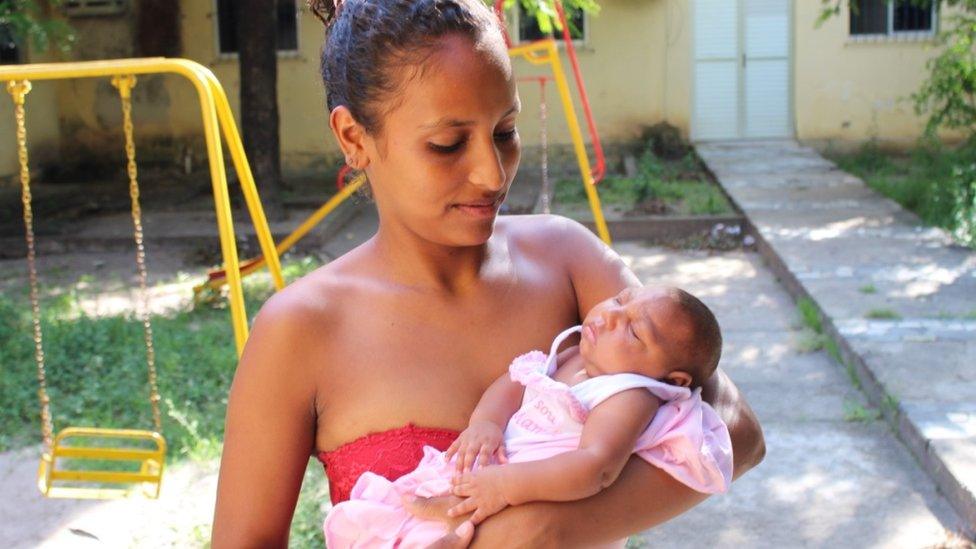Tourist industry on edge as Zika virus spreads
- Published
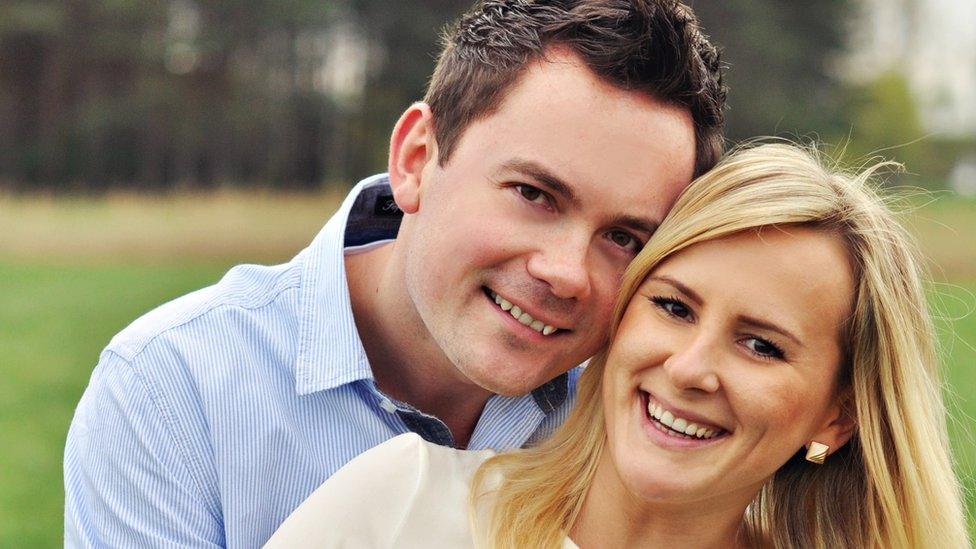
Kamil Rebacz and his fiancee Beata: "We can't take the risk"
For months Kamil Rebacz from London had been planning a holiday to the Dominican Republic.
His fiancee Beata was five months pregnant. "We had been saving for months and the baby is due in June," he says.
"We wanted to have a little free time for ourselves, and enjoy ourselves before the birth."
Then last month their plans unravelled as news of the Zika virus outbreak in Latin America hit the headlines.
Although the virus causes few problems to most people, it has been linked to brain damage in newborn children whose mothers have been affected.
"This is our first baby," says Kamil. "I have read about what could happen if my fiancee was bitten by a mosquito. I can't take the risk."
When Mr Rebacz first contacted his airline they refused to compensate him for cancelling his flight. However, a week later his holiday company later agreed to a full refund.
Ironically it's the increasing severity of the outbreak that probably got Mr Rebacz his refund.
The UK's National Travel Health Network and Centre (NTHNC) now says pregnant women should reconsider their travel plans, and that any traveller should seek advice from a health professional before departing if travelling to any of the affected area.
New guidelines
The new guidelines have made claiming a refund a lot easier, although insurance companies and travel companies insist that they are reviewing all claims on a case by case basis.
"If someone is advised not to travel to a destination by a medical professional then most travel insurance policies will cover cancellation costs than cannot be reclaimed elsewhere," says Caroline Jones of the Association of British Insurers.
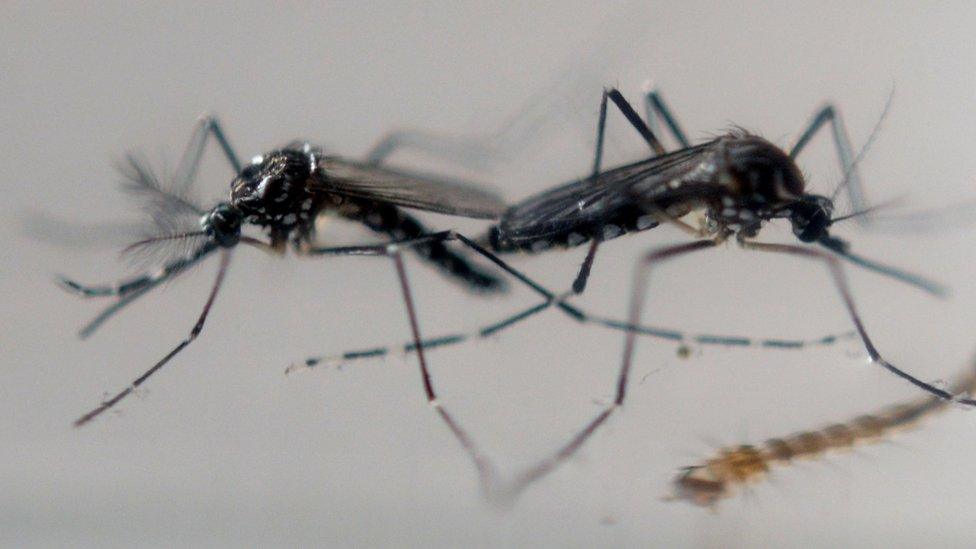
Aedes Aegypti mosquitoes which carry the Zika virus
"This is provided that the trip and insurance were bought before the recent advice changed.
"The primary reason for travel insurance is to cover medical costs abroad so in general someone needing treatment from the Zika virus whilst abroad would be covered."
As the Zika virus spreads across the Americas there are growing anxieties about its impact on tourism in the region.
The World Health Organization (WHO) on Monday reported that 21 countries and territories, including Latin American and the Caribbean, have seen cases of the virus.
However the number of cases of holidays being cancelled or even delayed is still very small.
Rio at risk
But for a country like Brazil it couldn't come at a worse time.
Deep in recession, with soaring unemployment and multiple corruption scandals Brazil needs all the tourist dollars it can get.
The Rio Carnival, which starts at the end of the week, brought in a million tourists and $782m (£542m) in revenues for the city last year.

Rio risk: Workers spray insecticide in Rio's Sambodrome, site of the Carnival's Samba Parade
Numbers at present seem to be unaffected but there is a bigger prize later in the year - the Rio Olympics.
The Brazilian government's communications director Mario Andrada said on Tuesday that there was, as yet, no evidence of people cancelling their trips to the Olympics in August.
In the UK Simon Williams, director of Bespoke Brazil said his customers were not cancelling holidays in Brazil but they were asking a lot of questions about the risks.
"Hopefully no one does cancel," he told the BBC's Victoria Derbyshire programme.
"We've had a couple of people who have decided to postpone their trips - one who was looking to get pregnant and I fully understand that because that's the real problem with Zika - and the potential links between Zika and microcephaly.
"So pregnant mothers or people who are looking to get pregnant - I would probably wouldn't travel to Brazil just because of that fear - even though the actual chances of having microcephaly are very low."
Honeymoon holidays
The Caribbean Tourism Organization and Caribbean Hotel and Tourism Association, have both reported travel cancellations in the Caribbean due to Zika.
The industry most at risk here is the cruise ship business. In 2014 there were 24.5 million cruise ship arrivals in the 30 territories of the Caribbean.
Honeymooners and young couples are a target market for the cruise lines - exactly the kind of tourist most at risk, if they get pregnant while on holiday.
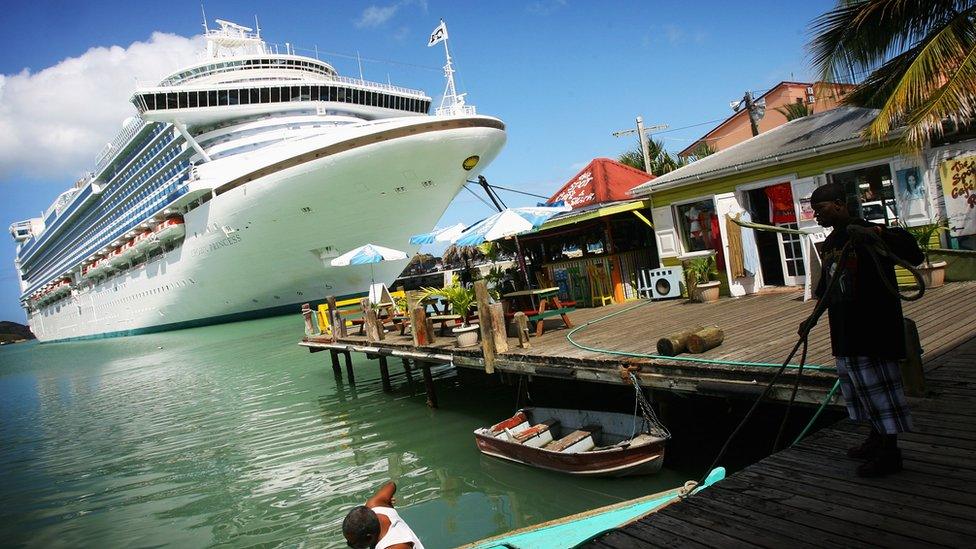
Cruise liners are most at risk but so far there have been few cancellations
Roger Frizzell, chief communications officer at the world's biggest cruise ship operator, Carnival, said: "It is actually a very small proportion of our guests that are pregnant, so the impact has been very limited.
"There have been a small number of cancellations.
"But we work with our guests to make sure they have the offering of an alternative destination and if that doesn't suit them we can offer them a cruise credit for future use."
However, all the cruise lines saw their shares fall last week as the media coverage of the virus gathered p[ace.
Tuesday saw even sharper falls although a set of disappointing profits from Royal Caribbean International made a gloomy situation worse, although this was more to do with the strong dollar and high costs than the Zika virus.
Norwegian Cruise Line shares fell over 7% on Tuesday and Carnival shares fell over 6%.
- Published5 February 2016

- Published2 February 2016
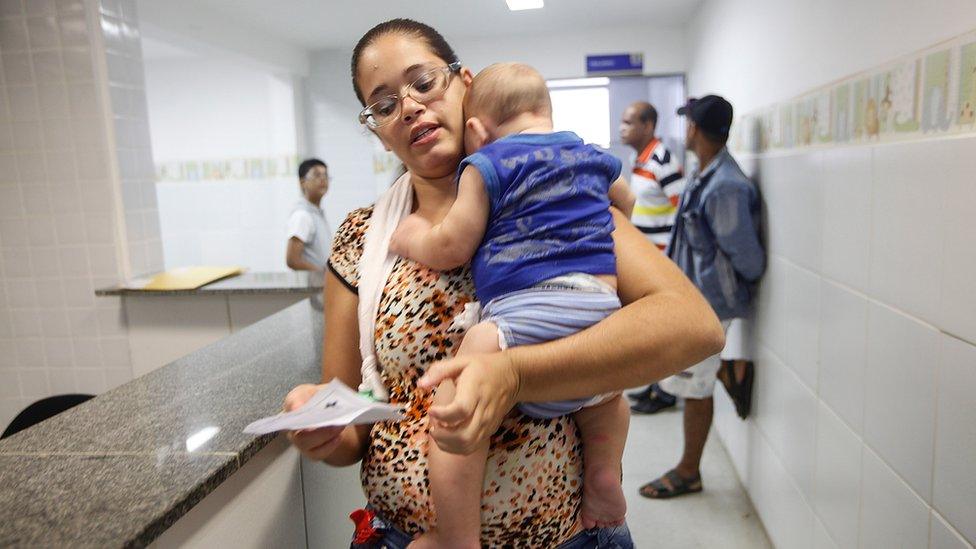
- Published28 January 2016
